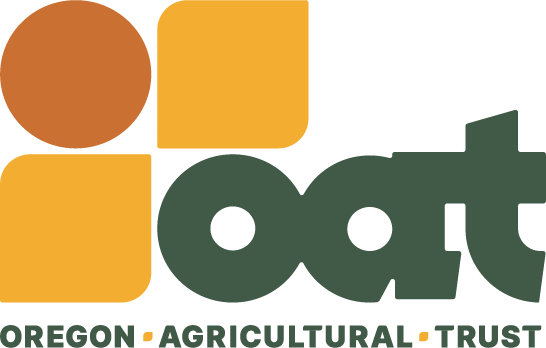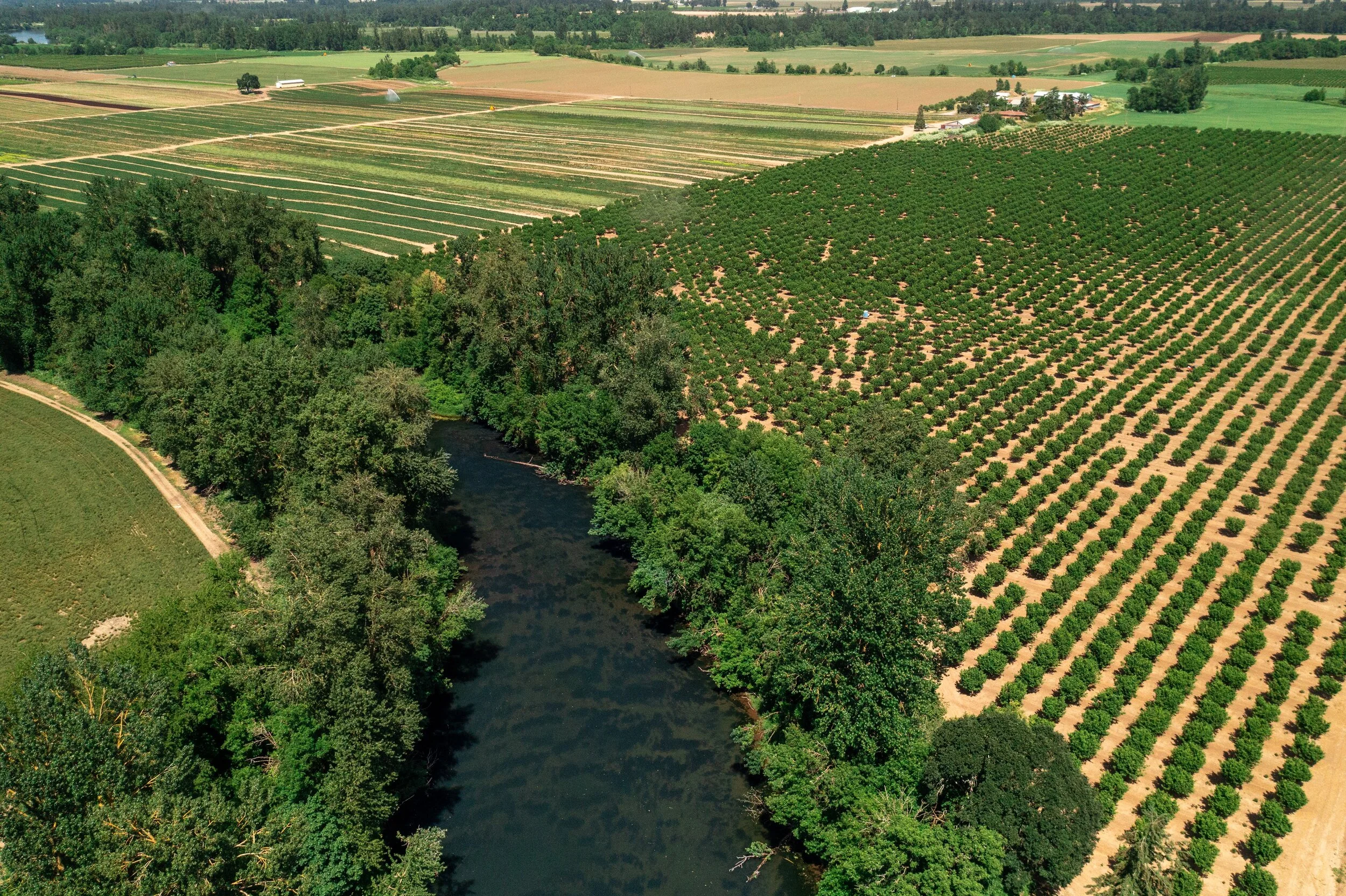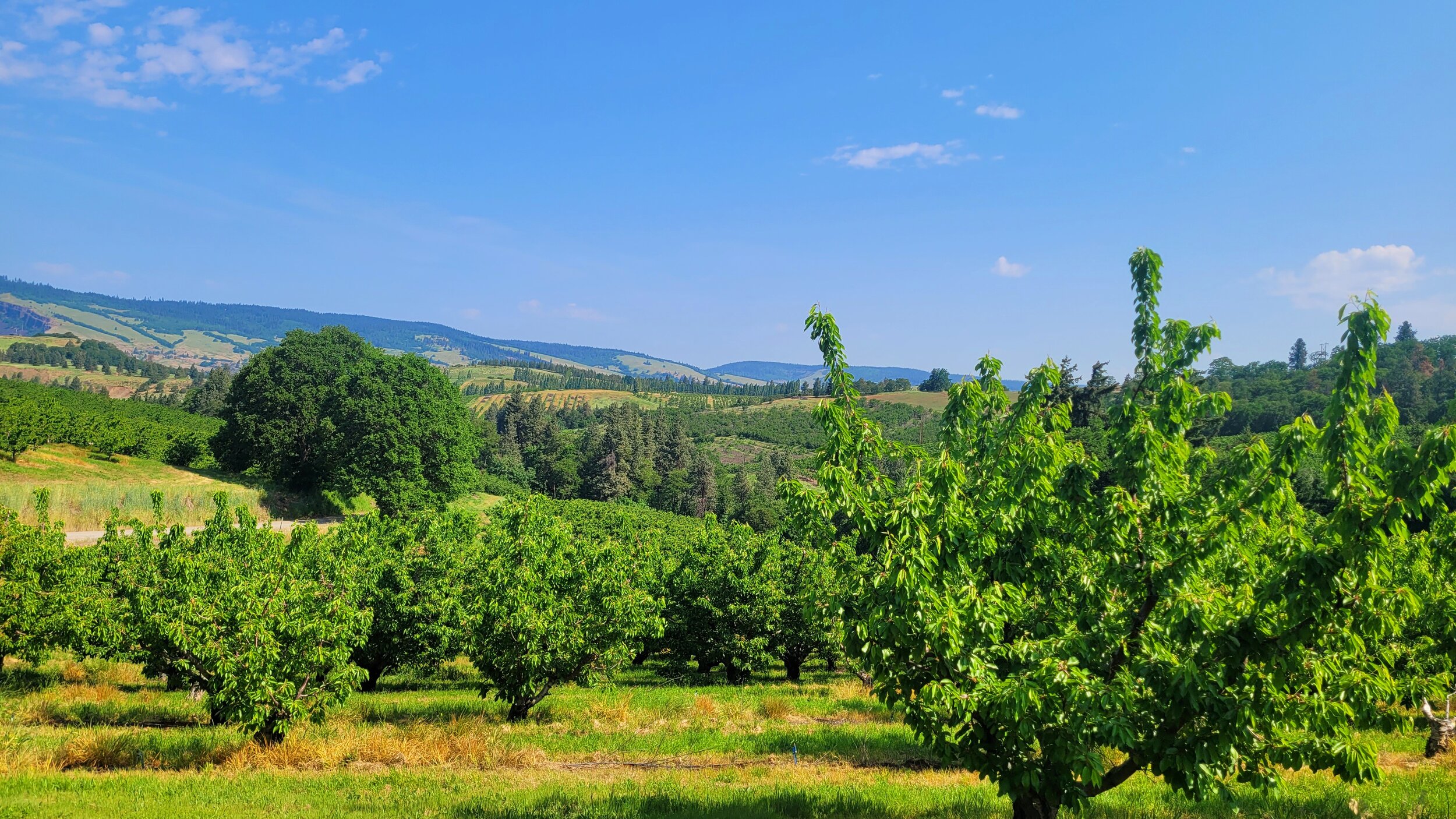“From an early age, I valued the land and what it could provide for people, animals and wildlife.”
OAT member Matt Moffitt shares the origin of his appreciation of nature and land, and why he feels strongly about farmland protection.
I'm originally from Texas, and moved up to the Pacific Northwest. I've always been into nature. My grandparents owned—not really a farm, but some land with animals on it. So I grew up hearing about and seeing a little bit of that. I always thought it was really, really interesting how they cared for and nurtured the land and the animals they had at the time. From an early age, I valued the land and what it could provide for people, animals, and wildlife. Moving up here to the Pacific Northwest, it became even stronger, because it's just so beautiful up here, and there's so much more variety of landscape and farmland. I live near Hood River. There are orchards, vineyards, and farmland around here, and it's really lush. It's beautiful to drive through these scenes and see this land being cared for in many different ways by providing different things for people. I wanted to do my part and to help contribute toward a cause that would keep these things alive. It's beautiful out there, and it provides jobs for a lot of people.
I [learned about OAT] at Loyal Legion in Portland. They had a [Cheers to the Land] booth set up and were trying to fundraise and to build membership and general awareness of the program. So I talked to the people there and really got excited about, at the very least contributing monthly to the cause, because protection of farmland was something I was really into.
I think farmland is important. The ownership is important. I was pretty unaware of what happens to farmland and how it’s developed or overdeveloped over time after it comes out of the hands of the farmers. Going back to where I live, you don't see a ton of that kind of development happening here, I think because people are really concerned about saving those spaces. It seems pretty important here. Also, I work at a health clinic, and part of our population are migrants/seasonal farmworkers. So from that side of the coin, it's such a huge job provider and source of income, not only for the farmers, but the migrants and seasonal workers who come in. We help give them healthcare when some of them aren't insured or have trouble finding spots they can go to. That's where we step in. We're serving that population. So it's important to us in health care, and it’s important that the populations are out there helping to steward that land.




